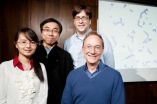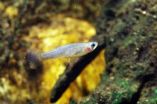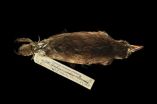(Press-News.org) Older drivers could benefit from training programs that put them behind the wheel—in a driving simulator, with an observer who helps them develop their skills. That's the conclusion of a new article published in Current Directions in Psychological Science, a journal of the Association for Psychological Science.
Older people are at much higher risk of car crashes than younger drivers. Some states and provinces test older drivers, hoping to get the riskiest drivers off the road. But the tests they use are inadequate, says Normand Teasdale of Université Laval in Québec, who cowrote the study with Pierre-Luc Gamache, Carol Hudon, and Martin Simoneau. Some governments only test vision; others test cognition, too. In some cases, on-the-road tests also are required.
But none of these tests is enough—they lack accuracy, sensitivity and specificity. To drive effectively, you not only have to be able to see, hear, and think about what's going on—you also have to be able to turn this sensory input into the right action, like stepping on the brake when you see a red light ahead of you. (And not stepping on the gas instead, a common mistake.)
Teasdale and his colleagues think a better approach is to help older adults improve their skills through the use of proper training using a driving simulator and appropriate feedbacks. In experiments, they've found that coaching helps older drivers improve. For example, in one experiment, older adults were tested on the road, then coached in a driving simulator. "We actually walk them through their errors by showing them their own response," Teasdale says. Then the drivers were tested again on the road—without coaching—and their driving improved. "After the training, they really were aware of why they were making errors and what not to do."
Older people should be able to treat driving the way they do golf or tennis, Teasdale says. "Elderly people, if they want, can pick up the phone and they'll have a golf pro or a tennis pro that will gladly help them for as many hours as they want, on the same day." Driving is just another set of motor skills, but there's no such service for driving. The services that are available are mostly to test older people and tell them if they aren't fit to drive anymore. "So I fully understand why older individuals are reluctant to get into this," Teasdale says.
Teasdale and his colleagues hope that coaches and driving simulators can be made available to more older drivers who are worried about their safety on the road. These methods may help keep older drivers behind the wheel longer without compromising road safety.
INFORMATION:
Visit the PsychologicalScience channel on YouTube for driving simulator videos related to this report:
http://www.youtube.com/user/PsychologicalScience?feature=mhum#p/a/u/1/s6-fCEYCn7g
http://www.youtube.com/user/PsychologicalScience?feature=mhum#p/a/u/0/ALrtijDe6Qs
For more information about this study, please contact Normand Teasdale at normand.teasdale@kin.msp.ulaval.ca.
Current Directions in Psychological Science, a journal of the Association for Psychological Science, publishes concise reviews on the latest advances in theory and research spanning all of scientific psychology and its applications. For a copy of "Alternative Avenues in the Assessment of Driving Capacities in Older Drivers and Implications for Training" and access to other Current Directions in Psychological Science research findings, please contact Keri Chiodo at 202-293-9300 or kchiodo@psychologicalscience.org.
Driving simulators help older adults improve their road skills
2011-01-14
ELSE PRESS RELEASES FROM THIS DATE:
Self-assembling structures open door to new class of materials
2011-01-14
CHAMPAIGN, Ill. — Researchers at the University of Illinois and Northwestern University have demonstrated bio-inspired structures that self-assemble from simple building blocks: spheres.
The helical "supermolecules" are made of tiny colloid balls instead of atoms or molecules. Similar methods could be used to make new materials with the functionality of complex colloidal molecules. The team will publish its findings in the Jan. 14 issue of the journal Science.
"We can now make a whole new class of smart materials, which opens the door to new functionality that we couldn't ...
More than 31 freshwater species have 'moved' to Galicia over past century
2011-01-14
Galician researchers have studied the evolution in the introduction of non-native fresh water species in Galicia over the past century, and have compared this with the rest of the Iberian Peninsula. The results show that 31 exotic aquatic species out of the 88 recorded for the entire Iberian Peninsula have become established in the region over the past century.
An analysis of the introduction of non-native species in Galicia and the Iberian Peninsula carried out by researchers from the University of Santiago de Compostela (USC) and the University of Coruña (UDC) has shown ...
Scientists sequence gut microbes of premature infant
2011-01-14
Scientists have for the first time sequenced and reconstructed the genomes of most of the microbes in the gut of a premature newborn and documented how the microbe populations changed over time.
Further studies involving more infants could eventually help researchers understand the causes of various intestinal problems that afflict preemies, in particular the sometimes fatal necrotizing enterocolitis, according to researchers at the University of California, Berkeley, the University of Pittsburgh School of Medicine and Stanford University. One unresolved question is whether ...
MIT neuroscientists explain 'Proustian effect' of small details attached to big memories
2011-01-14
CAMBRIDGE, Mass. – Neuroscientists at MIT's Picower Institute of Learning and Memory have uncovered why relatively minor details of an episode are sometimes inexplicably linked to long-term memories. The work is slated to appear in the Jan. 13 issue of Neuron.
"Our finding explains, at least partially, why seemingly irrelevant information like the color of the shirt of an important person is remembered as vividly as more significant information such as the person's impressive remark when you recall an episode of meeting this person," said co-author Susumu Tonegawa, Picower ...
Breaking point: LSU professor discovers method to determine when metals reach end of life
2011-01-14
BATON ROUGE – We live in a world almost completely dependent upon machinery. Since the creation of the simple wheel, humans have found ways to increase quality of life and advance scientific knowledge using these devices. Though the prevalence of machinery has allowed us to build bigger, travel faster and create more quickly with complexity increasing as science advances, our dependence upon them has limitations. Everything that moves can and will break, especially metals under strain. And when they fail, the consequences can be catastrophic. LSU's Michael Khonsari has ...
The best way to measure dark energy just got better
2011-01-14
Dark energy is a mysterious force that pervades all space, acting as a "push" to accelerate the Universe's expansion. Despite being 70 percent of the Universe, dark energy was only discovered in 1998 by two teams observing Type Ia supernovae. A Type 1a supernova is a cataclysmic explosion of a white dwarf star.
These supernovae are currently the best way to measure dark energy because they are visible across intergalactic space. Also, they can function as "standard candles" in distant galaxies since the intrinsic brightness is known. Just as drivers estimate the distance ...
AGU journal highlights -- Jan. 13, 2011
2011-01-14
The following highlights summarize research papers that have been recently published in Geophysical Research Letters (GRL).
In this release:
Spooky action at a distance, for earthquakes
Evidence for water ice near the Martian equator
Extraordinary uplift of Yellowstone caldera
New evidence could let supereruption off the hook
Auroral oscillations seen on Saturn
How much sea-level rise can coastal marshes withstand?
Rain affects carbon-dioxide flow between sky and sea
Ionosphere model overshoots during solar minimum
Anyone may read the scientific abstract for ...
Cattle health and welfare at the heart of K-State research
2011-01-14
MANHATTAN, KAN. -- At any given time between 10 and 20 percent of cattle in the United States are afflicted with lameness, making it one of the most common ailments affecting feedlot and stocker calves.
That's why a Kansas State University research team is working to reduce the percentage of cattle affected by bovine lameness.
Three researchers -- David Anderson, professor of clinical sciences; Brad White, associate professor of clinical sciences; and Johann Coetzee, associate professor of clinical sciences -- are involved with bovine pain and welfare assessment at ...
Physicists discover Crab nebula is slowly dimming
2011-01-14
BATON ROUGE – The Crab Nebula, once considered to be a source of energy so stable that astronomers used it to calibrate their instruments, is dimming. LSU physicists Mike Cherry, Gary Case and graduate student James Rodi, together with an international team of colleagues using the Gamma-ray Burst Monitor, or GBM, on NASA's Fermi gamma-ray space telescope, discovered the anomaly. This revelation has proven astonishing for astronomers.
The Crab Nebula, one of the most studied objects in the sky, is the wreckage of a star that exploded in 1054. Considered a cornerstone of ...
100-year-old specimens at California museum help determine when avian pox hit Galapagos
2011-01-14
A research team from across the United States and Ecuador has pinpointed 1898 as the year the avipoxvirus, or avian pox, hit the Galapagos Islands and started infecting its birds. This estimation is vital to understanding avian diseases that affect today's Galapagos birds. The scientists' paper on the subject, "110 Years of Avipoxvirus on the Galapagos Islands," will be published on January 13 in PLoS ONE, an international, open-access science publication.
The research team, led by Dr. Patricia Parker of the University of Missouri–St. Louis, examined 3,607 finches and ...


